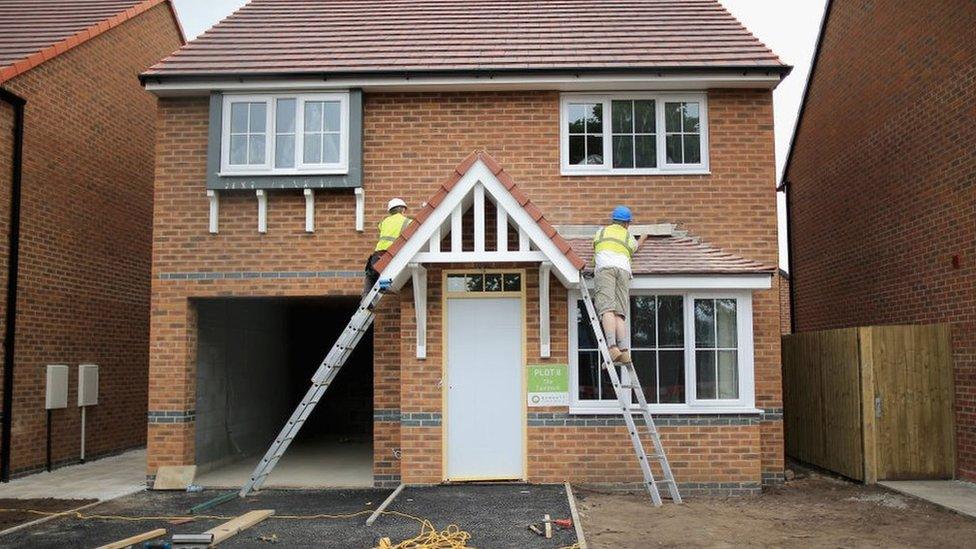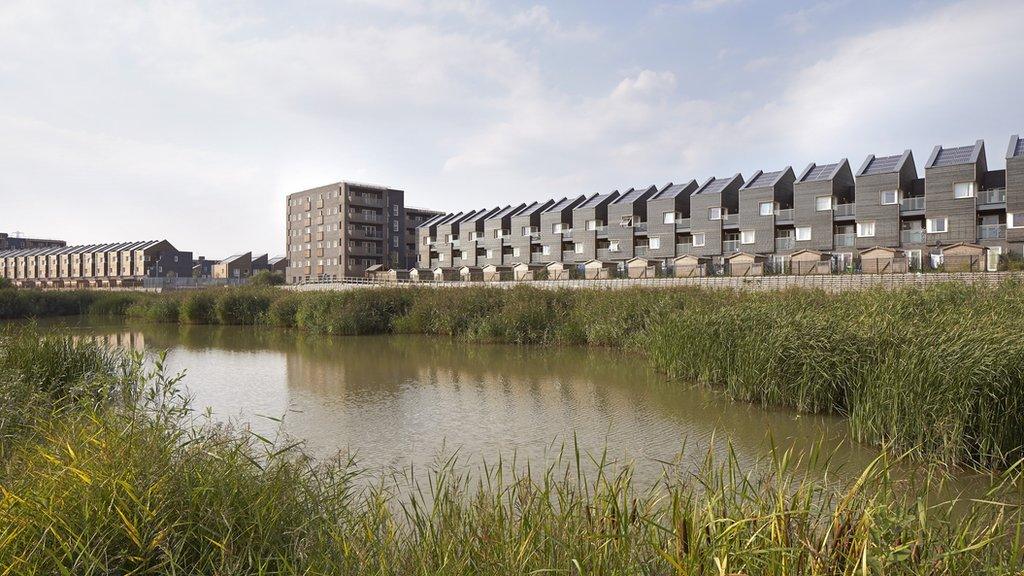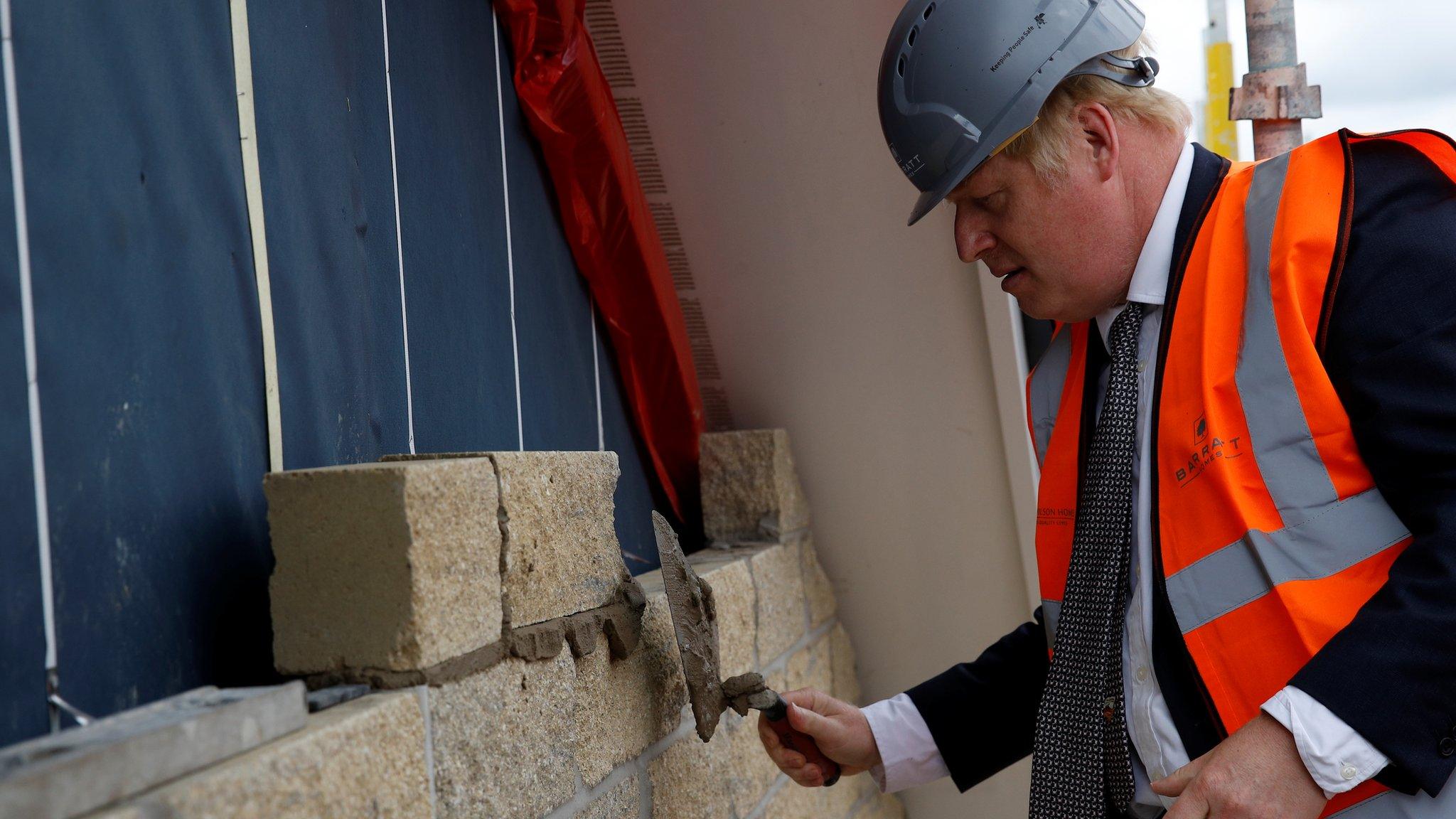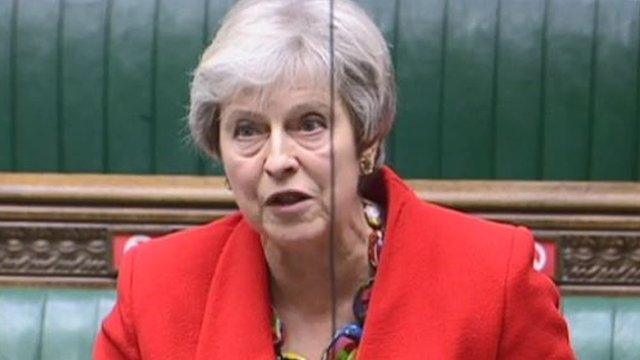New homes plan revised after Tory backlash
- Published

The government is set to revise its proposals for controversial planning reforms in England, after new housing targets prompted a backlash amongst some senior Conservative MPs.
Ministers have proposed updating the formula for where to build houses to meet its aim of delivering more homes.
But some said the "mutant algorithm" would fail to "level up" the North and see the South "concreted over".
Critics of the proposal include former Prime Minister Theresa May.
She said the new formula "does not guarantee a single extra home being built".
In the House of Commons, Housing Secretary Robert Jenrick said he would make a statement on revised plans "in the weeks ahead".
He told MPs the Covid crisis was causing the "most substantial change to city centres and town centres since the Second World War and that does give us pause for reflection".
The government would "consider what those opportunities will be for the repurposing of offices into residential, for turning retail into mixed use and that will, I think, lead us to a different approach to distributing housing numbers across the country," he said.
The new formula was proposed as part of wider government planning reforms.
They include a target to build 300,000 new homes across England each year by the mid-2020s, with the formula providing a rough estimate to local councils on how many need to be built in their communities.
Mr Jenrick has said local authorities will then be expected to come forward with potential sites for new buildings - taking into account constraints, such as areas protected by the green belt.
But several Tory MPs have expressed concern that the government's plan could mean more homes in rural areas and in the South East, rather than the North and Midlands.
Calls for 'rethink'
While the 300,000 target remains "undiminished", the government says it has listened to the feedback of critical MPs and ministers are looking to "rebalance" the formula.
It is thought the focus will shift towards building more homes in the North and Midlands, and in urban areas or city centres - where the coronavirus pandemic has potentially accelerated a longer-term drop in demand for office and retail spaces.
It does not mean there will not still be new homes built in the South East.
Former Health Secretary Jeremy Hunt, who met Mr Jenrick this week to raise his concerns about the formula, thanked his colleague on Twitter for "listening to the concerns of me and many other MPs".
He added: "We support your desire for more houses to help young people get on the housing ladder and will work with you to make sure a revised algorithm achieves that."
Conservative MP for the Isle of Wight Bob Seely, who led calls for a change to the plan - and secured a recent Commons debate on the issue - told the BBC he also welcomed the fact the government was willing to listen to the "strength of feeling and depth of concern" backbenchers had.
But he said it now had to work with MPs and "rethink" as the UK needed "levelling up, not concreting out."
Former Environment Secretary Theresa Villiers also said the change in approach from government was "encouraging", but "a few tweaks are not enough".
She said: "We need radical change to the proposal if we're to ensure that this algorithm doesn't lead to unacceptable overdevelopment."
Boris Johnson has defended his proposals for overhauling the planning system.
Meanwhile, sources from the Ministry of Housing, Communities and Local Government have also confirmed the department is looking to move a "proportion" of its operations to the West Midlands, with Wolverhampton understood to be the preferred location.
This would involve moving ministerial offices and senior officials, although ministers would still spend time in Westminster.
Next year has been described as a "ball park" timeline for the move.
- Published6 August 2020

- Published6 August 2020

- Published8 October 2020
